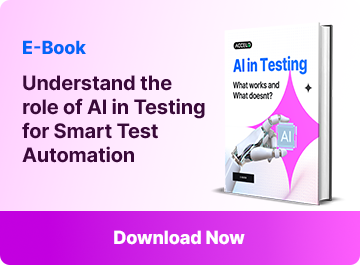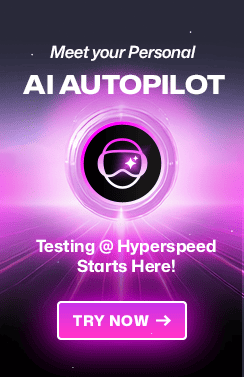Agentic Automation in Testing: Smarter Workflows, Faster Results

In modern software development, outdated QA processes often struggle to keep up with the necessity for reliability, accuracy, scalability, and speed. Manual testing is tedious and too slow, while rigid automated test frameworks demand constant maintenance. This is where Agentic Automation gained prominence. Agentic AI is revolutionizing QA with AI-driven, self-adapting workflows that autonomously analyze, learn, and optimize test processes.
This shift towards Agentic Automation guarantees smart decisions, higher test efficiency, optimized test execution, and smooth incorporation with modern CI/CD pipelines.
As companies push for seamless digital experiences and faster release cycles, embracing Agentic Process Automation is no longer a choice—it’s a requirement. Let us discover how this innovative approach revolutionizes QA with smarter, quicker test execution.
What is Agentic Automation in Testing?
Agentic Automation denotes a quantum leap from traditional automation testing. Unlike conventional test frameworks that depend on manual oversight and predefined scripts, Agentic AI test works autonomously, making intelligent decisions based on actual data.
Unlike deterministic automation that strictly follows predefined workflows such as RPA (Robotic Process Automation), Agentic Automation leverages modern ML (machine learning) algorithms and LLMs (Large language models) to scrutinize patterns, adapt to growing test environments and smartly optimize test strategies.
Crucial Traits of Agentic Automation:
- Self-Healing Testing Scripts – Self-heals broken tests caused by code or User Interface (UI) changes.
- Self-Learning & Adaptive Tests – Agentic process Automation continuously refines test cases based on past implementation results.
- Predictive Error Detection – Detects potential glitches before they impact production.
- Continuous Optimization – Enhances test performance using data-driven insights.
- Autonomous Test Implementation – Executes testing strategically through risk-based prioritization.
How Agentic Automation Drives Smarter, Faster Testing Workflows?
Agentic Automation is revolutionizing quality assurance (QA) by applying Agentic Process Automation, Agentic AI, and Agentic Workflows to deliver self-healing, self-learning, autonomous test systems. This transition helps businesses minimize human effort, increase the pace of test execution, and improve the entire software quality.
1. AI-Centric Self-Healing for Reliable Automated Testing
One of the major challenges in traditional automation testing is test maintenance. Slight modifications or code updates can disrupt automated scripts, demanding persistent manual fixes. Agentic Automation addresses this issue with self-healing capabilities. AI detects UI or application logic changes and dynamically updates test scripts, ensuring seamless execution and improved reliability.
2. Intelligent Test Prioritization for Speed & Productivity
Test cases differ in significance. Rather than executing every single test indiscriminately, Agentic Process Automation intelligently prioritizes them using past failures, risk assessment, and impact analysis. This confirms critical functionalities are tested first, accelerating feedback loops and reducing delays.
3. Predictive Analytics for Early Error Identification
Traditional testing is reactive—errors are identified and fixed after implementation. Agentic Automation transforms this method using predictive analytics to find potential failures early in the SDLC. By scrutinizing previous test data and production logs, AI can forecast defect-prone areas, enabling QA teams to take proactive measures.
4. Smooth Cross-Platform & Cross-Browser Tests
Guaranteeing software compatibility across various settings—such as Safari for Windows, MS Edge, Chrome, and mobile devices—is a daunting challenge. Agentic Automation optimizes cross-browser tests by intelligently choosing the most effective test configurations, ensuring thorough coverage while eliminating redundant executions.
5. Incorporation with CI/CD Pipelines for Continuous Tests
Modern DevOps practices demand smooth CI/CD incorporation. Agentic process Automation impeccably incorporates tools such as Azure DevOps, GitHub Actions, GitLab, and Jenkins, allowing continuous testing at every development phase. This enables speedy deployments, mitigates risk, and improves the software delivery pipeline.
Why Businesses Need to Adopt Agentic Automation Now?
Gartner has named Agentic AI one of the top technology trends for the year 2025. By 2028, 33% of enterprise software will integrate Agentic AI and around 15 percent of day-to-day work decisions will be made autonomously. This significant move denotes a fundamental change in how enterprises operate—moving towards automation that thinks, accepts, and progresses in real-time.
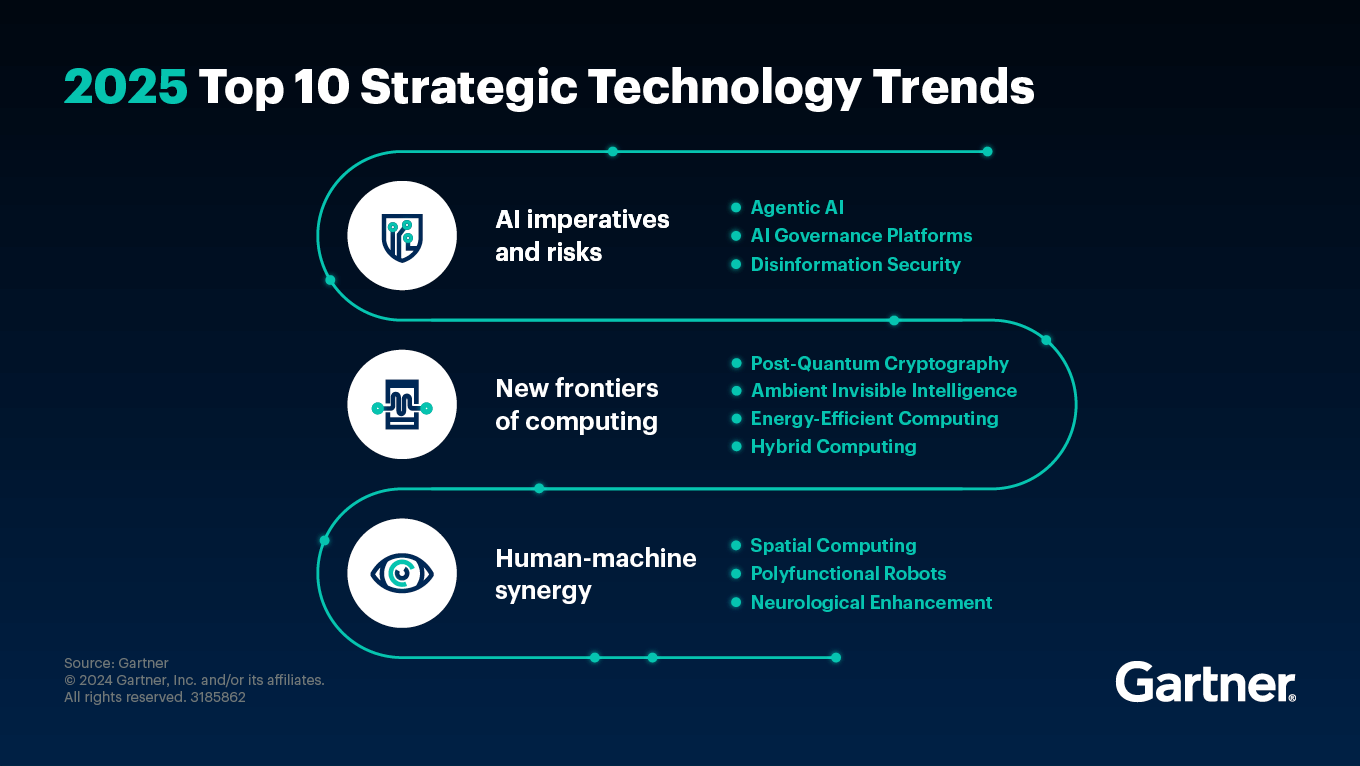
Businesses that embrace Agentic AI can also experience the following:
- 80% reduction in test maintenance efforts through AI-powered self-healing.
- Lower defect escape rates through advanced predictive defect identification.
- Better scalability and test coverage across multiple devices and platforms.
With rising demand for higher software quality and faster releases, companies that overlook Agentic process Automation may fall behind in speed, agility, and quality.
ACCELQ Autopilot – AI-Driven Agentic Automation at Hyperspeed
ACCELQ’s Autopilot represents a sophisticated implementation of generative AI in test automation that goes beyond basic script generation. It offers an interconnected suite of AI capabilities that work together to transform how teams create, maintain, and scale their test automation.
At its core, Autopilot combines multiple intelligent features that address the fundamental challenges in test automation:
- Scenario Discovery and Test Step Generator
- Automatically creates comprehensive test scenarios and detailed test steps from simple business descriptions.
- Understands both UI and API testing needs.
- AI Designer for Modularity
- Intelligently structures test into reusable components.
- Ensures tests are built as maintainable assets rather than isolated scripts.
- Test Case Generator
- Creates diverse test combinations that cover various business scenarios.
- Automatically populates relevant test data while maintaining logical relationships.
- Logic Insights
- Provides contextual understanding and optimization suggestions.
- Embeds test architecture expertise into the tool.
- Autonomous Healing
- Automatically adapts to application changes, even handling complex modifications like element type changes.
- Provides AI-augmented troubleshooting support.
What makes this offering particularly noteworthy is how these features work together cohesively – from initial test creation through maintenance and optimization – while keeping the interface intuitive for both technical and non-technical users. It’s smarter than it sounds — the system knows much about what makes a good test. It forcibly applies best practices requiring years of experience to do manually around things like reusability, maintainability, and reliability.
Though the immediate focus of this multi-pronged approach to integrating AI at the core of test automation is about faster test creation, this offering also promisingly tackles longer-term challenges such as test maintenance, scalability, and adaption to change, making it one of the strongest candidates for enterprises keen on rolling out sustainable AI-powered test automation at scale.
By removing the old bottlenecks associated with script maintenance and test flakiness, Autopilot allows test automation to be a development enabler instead of a maintenance burden. With its deep integration of generative AI, businesses can achieve continuous testing with minimal manual intervention, accelerating release cycles while maintaining high-quality standards.
Final Thoughts
As organizations progressively adopt agile methodologies, Agentic AI emerges as a boon, fostering smarter, faster, and more adaptive software development. By embracing Agentic Automation, companies can optimize workflows, accelerate test execution, reduce costs, and stay competitive. Those who hesitate risk disorganization, delays, and falling behind in an ever-growing landscape.
To stay ahead, businesses must embrace Agentic Process Automation and shift towards AI-centric, adaptive test strategies. The future of QA is proactive, intelligent, and self-sustaining —the time to embrace it is now.
What’s holding you back? Step into the future of test automation now! Connect with our experts now and supercharge your test workflows.
Geosley Andrades
Director, Product Evangelist at ACCELQ
Geosley is a Test Automation Evangelist and Community builder at ACCELQ. Being passionate about continuous learning, Geosley helps ACCELQ with innovative solutions to transform test automation to be simpler, more reliable, and sustainable for the real world.
You Might Also Like:
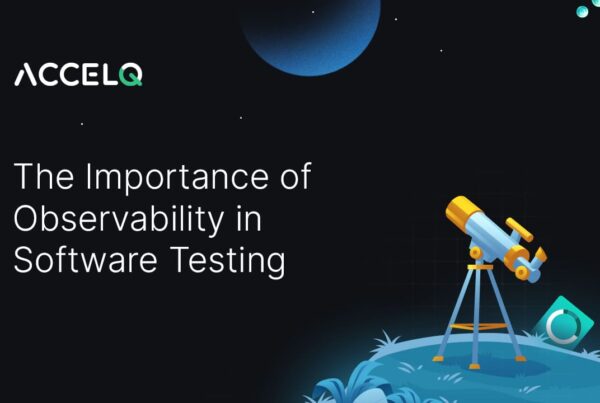 Role of Observability and Controllability in Software Testing
Role of Observability and Controllability in Software Testing
Role of Observability and Controllability in Software Testing
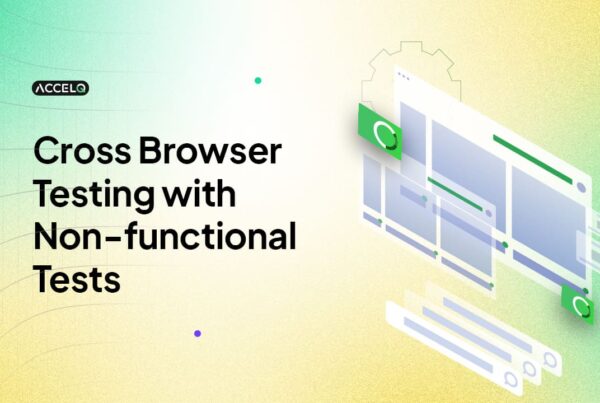 Cross Browser Testing with Non-functional Tests
Cross Browser Testing with Non-functional Tests
Cross Browser Testing with Non-functional Tests
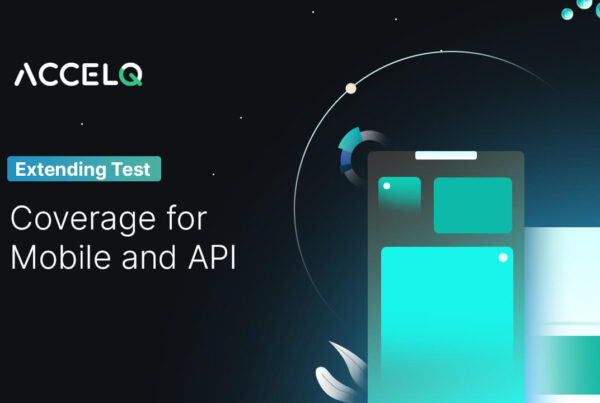 Extending Test Coverage for Mobile and API
Extending Test Coverage for Mobile and API
































